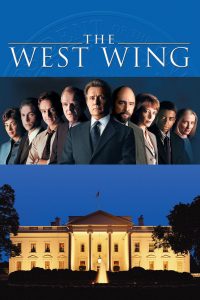Context is something I always missed in History class, back in school.
The least interesting or important thing about History, to me, was always the dates. Think about it. JFK was shot on November 22nd, 1963. But the important thing here is that he was shot. Then maybe that he was shot toward the end of November of 1963, then that he was shot toward the end of 1963. How would your life be any different if it had been Saturday, November 23rd? I bet it wouldn’t. The thing or event is important, and what the thing means or meant is important. How everyone involved reacted and has reacted since is important. But that it happened on a given day has never carried a lot of water, with me. Where do you draw the line with the granularity, there? Should we teach 1963 only? Should we teach November of 1963? Do we need to teach November 22nd of 1963? Does it have to be Friday, November 22nd, 1963? Friday, November 22nd, 1963, at 12:32pm Central Time in Dallas, Texas? At some point the fact becomes merely trivia.
See what I mean? What possible difference could it make?
I understand the idea that we need to assign dates and times like an index of sorts to historical events. Event 012345 comes before Event 012347 and so on. Sure. We need to know it happened after WWII but before the AIDS crisis. But in most cases, it’s not what anyone wants or needs.
Don’t Know Much About History
No, I was always wanted to know what motivated everyone. What were they thinking? Why did they act the way they did at the time? What were they sure of? What were they afraid of? And what else was going on? Shelby Foote was great about giving us this. He has a passage about a Civil War battle where he talks about the Union Army waking up and starting their day. A lot of this involved making breakfast, which consisted of eggs and bacon and coffee. And this would have been fine except for the wind that morning, which blew across the Confederate lines and those men had none of these things. Imagine waking up far from home, still tired from the march of yesterday, wondering if you were going to live to see the end of the day, and then having to smell another man’s breakfast. Now that’s history.
Iceberg dead ahead! One Small Step For A Man. The Eighteenth Amendment is repealed—let’s have a drink. None of that happened in a vacuum. And it always seemed to me we were doing ourselves a disservice thinking we could think about those events that way, or thinking we could disregard whatever else was going on in the world at the time. None of the people who got aboard TITANIC did so just because it was the great ship’s first voyage, I’m sure. Or did so because the popular mythology was that the ship was unsinkable. Neil Armstrong didn’t fly to the Moon alone and there were countless struggles to overcome obstacles large and small by the people who helped him along the way. Each of those is more interesting to me, more important to me, than whether he touched down on July 19th or July 20th, 1969. Why would anyone think you could pass a law and get an entire nation to give up drinking? Why would anyone think it was necessary? Or even a good idea? And why didn’t they immediately notice it wasn’t working and wasn’t going to work?
But we never talked about these things.
The story of the second half of the last century is the story of the Cold War. It’s rarely mentioned but it seeped into everything. We had little icons on our AM radio dials at 640 and 1240 kHz. When the balloon went up we were to tune to one of these, to receive instructions. The Cold War factored into our decisions on where we lived and worked and where we vacationed. We built shelters in our basements and backyards and wondered if would have to shoot our neighbors who were not so well prepared. The sense of doom trickled into our music and movies and television shows and all of this, in turn, affected how we thought about ourselves and Those People, too.
One interesting facet of all of this is the wait-a-minute factor in storytelling. The night I met my wife, she asked me how computers actually worked and I wait-a-minute-ed myself back to the abacus because you can’t really tell this story without explaining that and so you have to tell that story, first. It’s all context. It’s all important. But we only focus on the dates.
